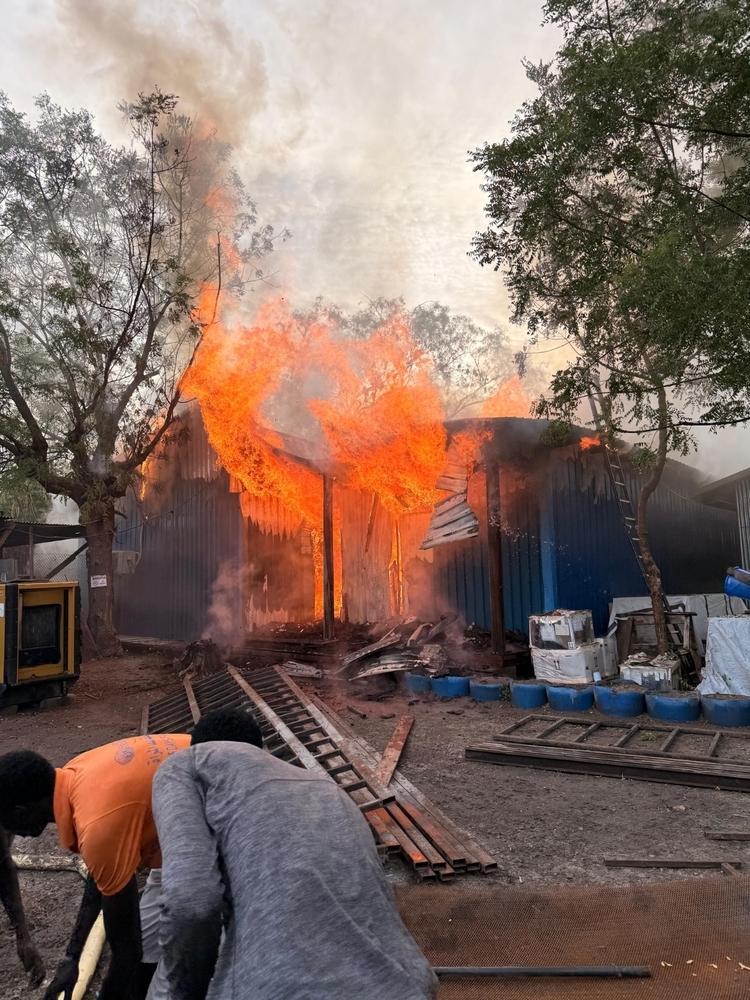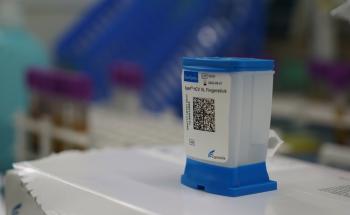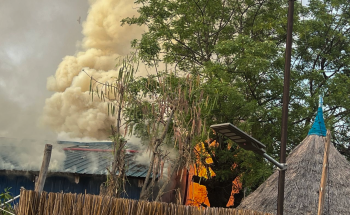David Charo Kahindi, MSF’s Medical Coordinator in South Sudan, was in Old Fangak the day the hospital was bombed and was part of the team extinguishing the fire and treating and evacuating the wounded patients. Here, he describes what happened.
“I had no words to explain to the patients that the hospital was no longer safe for them”
I was woken by the bombing at around 04:50 on Saturday morning. I could hear the helicopters flying overhead and people screaming all around us. Every time I heard the helicopters, I was afraid for my life and the lives of the population, the patients and the staff. The bombing continued for about an hour. All I could hear was the guns firing and the population screaming.
When it finally went quiet, I immediately took the boat to get to the hospital. l met our watchman at the gate and saw that it was completely shattered. There were bullets everywhere. As I walked into the compound, I saw pieces of weaponry that had exploded.
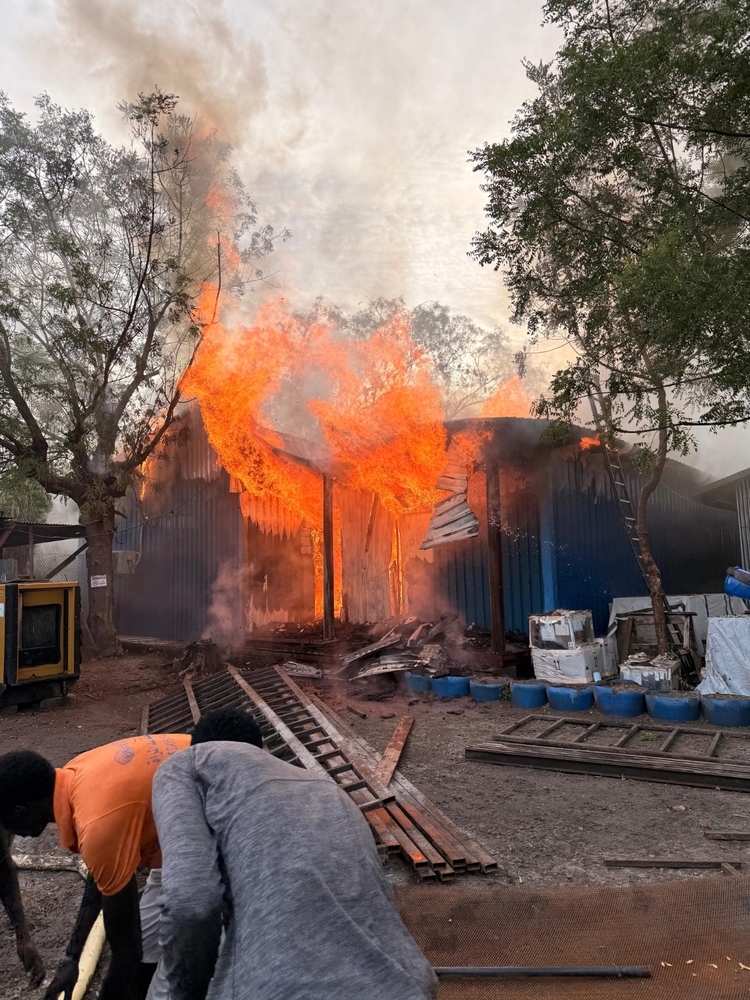
Bombing of MSF hospital in South Sudan
I am completely heartbroken by what has happened. The hospital had been there for more than 10 years and was a lifeline to over 100,000 people in the areaDavid Charo Kahindi, MSF’s Medical Coordinator in South Sudan
When I reached the pharmacy, it was on fire. Everyone, the team and the community, was trying to fetch water with buckets to put it out. It was no easy task because our fuel tanks were a few metres away from the pharmacy. We were afraid that if the fire continued, this fuel would explode and cause another disaster on top of the one we were already dealing with.
At first, I thought there was a chance that we could save some of the medications that were inside, but it quickly became clear that whoever bombed the hospital wanted this pharmacy and all the medications inside it to be completely burned. It took us about five hours before we could completely put it out.
Then, I walked into the hospital. First, I went to the men’s ward where two patients had been the night before. When I entered the ward, there was no one there, but there were bullet holes on the ground and there was blood on the floor. I was worried. I didn't know what had happened or where the patients had gone. It was the same in the female ward as well.
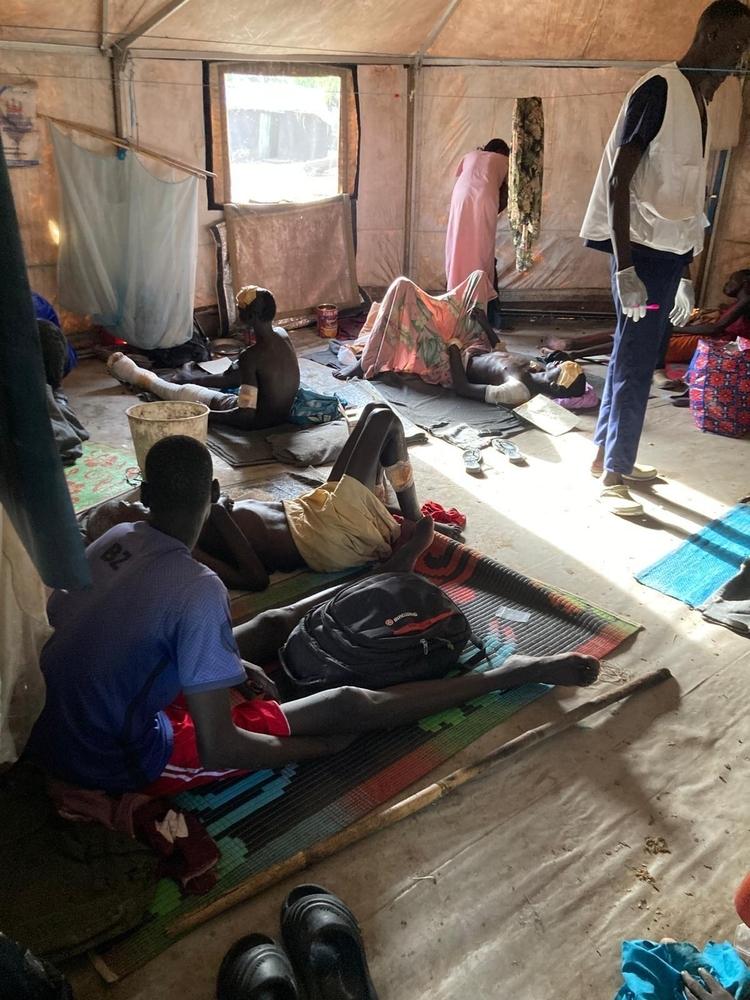
Next, I reached the emergency room, where the team was busy stabilising and treating the patients who had just arrived from town. There were 20 in total, and some of them were in a very, very critical condition, and we urgently needed to stop the bleeding. Some of them had been shot in the head, in the chest, in the abdomen. We tried to do everything we could, but there were no supplies other than what had been on the ward before the attack. What we had was definitely not enough.
Once we had stabilised the patients, we evacuated them by speedboat to a village about an hour away that we considered safer. Most of the patients were women. There were also children of just 15 years old that were wounded. In this village, there was nothing but a tent. We were in the middle of nowhere. We kept the patients in the tent there and gave them what medication we had been able to bring with us. The next day, they were evacuated by air to a hospital in Akobo for further treatment
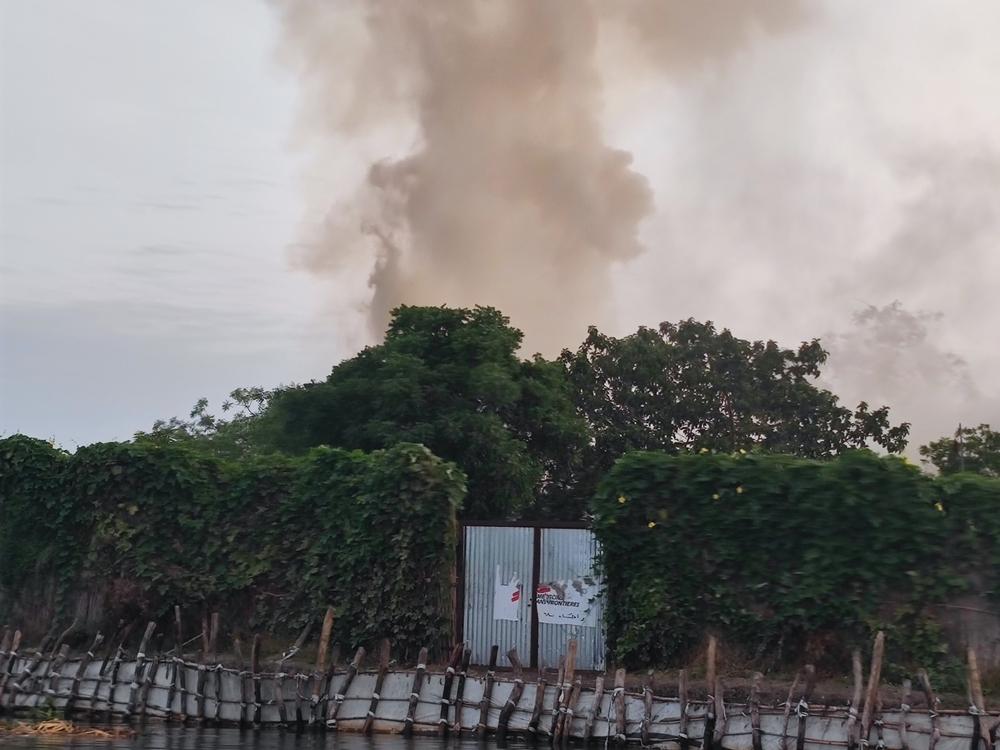
However, around 10,000 people had fled to the same location, and by morning, it was clear that we didn't have enough supplies to run a health facility that would be able to provide this many people with any type of medical care. We called urgently for help from the team in Juba, and with the support of the United Nations, we were able to airlift 350kg of medical supplies to run a health post from this tent. We hope that we don’t receive any more wounded, but we continue to receive information that there is ongoing bombing in other areas.
I am completely heartbroken by what has happened. The hospital had been there for more than 10 years and was a lifeline to over 100,000 people in the area. Hospitals should never be the targets, and I utterly condemn this bombing. It was a 35-bed hospital that had an outpatient department, inpatient wards, maternity – and we were able to refer severe cases to higher level facilities. Now, there is nothing left.
